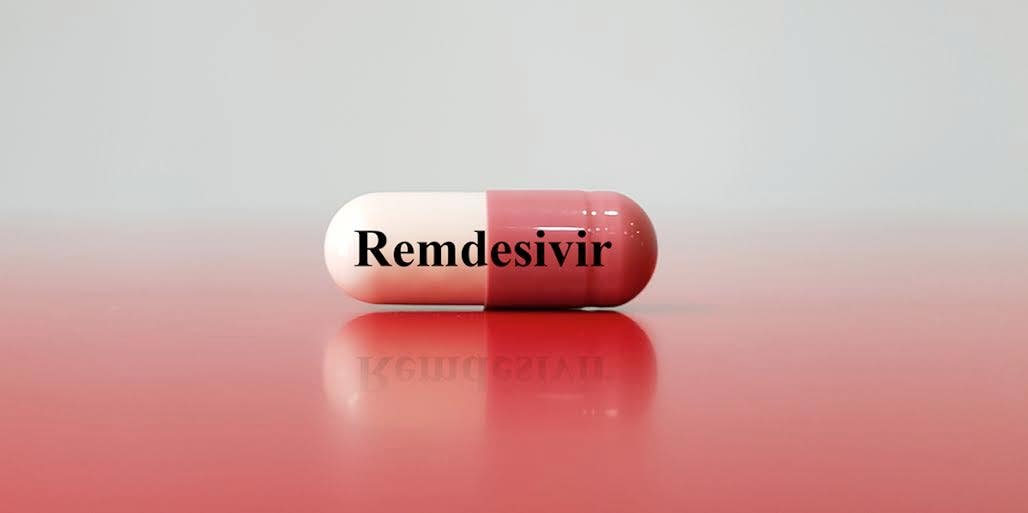What Is Remdesivir — And Could This Experimental Drug Treat Coronavirus?
Two patients who got the drug felt better the next day!

As the number of people testing positive for COVID-19, AKA the coronavirus, increases exponentially worldwide, scientists and doctors seem to be working overtime to try to find a treatment, if not a cure, for the deadly COVID-19 virus.
However, a recently published study suggests that there could be a very effective treatment on the horizon — one that could perhaps make its patients feel better in as little as 24 hours.
What is Remdesivir — and could this experimental drug treat Coronavirus (COVID-19)?
Details about the first early results of a clinical trial for Remdesivir have been released. So, what is Remdesivir, and why is it giving so much hope in the wake of the COVID-19 pandemic?
Let's look at what we know about this potentially promising drug.
Remdesivir is an antiviral drug originally developed to treat the Ebola virus.
Remdesivir is a drug that was originally developed back in 2007, though it was "pushed through" the clinical trials and quickly approved for treatment and use, thanks to the West African ebola epidemic in 2013.
It was subsequently discovered to be highly effective against other viruses, including the SARS virus and the MERS virus.
The United States Army Medical Research Institute of Infectious Diseases had its first successful run with the drug in 2015.
In 2015, Travis Warren — who had been the lead researcher on the effects of Remdesivir — announced that he, in partnership with the United States Army Medical Research Institute of Infectious Diseases, had a successful run with the drug in 2015.
Specifically, Warren discovered that the drug provided complete immunity from the ebola virus in rhesus monkeys.
Does Remdesivir stop the coronavirus altogether?
Dr. Gregory Poland, an infectious disease expert and director of the Mayo Clinic's Vaccine Research Group in Rochester, Minnesota, said that Remdesivir "basically stops the production of the virus."
He was referring, of course, to COVID-19. Two coronavirus patients in the United States — both in Washington state — allegedly felt better within 24 hours of treatment with Remdesivir.
The drug could be approved 'within months' for coronavirus treatment.
As of this writing, Remdesivir is not approved for coronavirus treatment in the United States. (The two instances of treatment in the United States were considered "experimental.")
However, five clinical trials with the drug are underway, two of which are in China. Experts believe that if China's run of the drug proves successful, Remdesivir could be approved for use in the United States "within months."
What about the company that makes the drug?
Gilead Sciences, the company that makes Remdesivir, is reportedly being eyed by investors in the United States because of this promising result.
However, the promise is being tempered with caution, as there are side effects associated with the drug, which can include a decline in blood pressure and loss of kidney function. However, these are symptoms brought on only by severe cases of coronavirus.
Trump is reportedly trying to remove "every barrier" to get Remdesivir approved for use against coronavirus in the United States in sooner than a few months.
"We have to remove every barrier. There were a lot of barriers that were unnecessary,” Trump said at a press conference last month. “For the FDA to act the way they acted with this kind of speed, it’s incredible.”
Trump, however, has received pushback, with Dr. Anthony Fauci, head of the National Institute of Allergy and Infectious Diseases and a member of the White House coronavirus task force, saying that "rushed medicines" could prove to do more harm than good.
The National Institute of Health will be releasing early results of a clinical trial for the drug.
Gilead Sciences just announced that a division of the National Institutes of Health is set to make an early release of positive results from a clinical trial of remdesivir.
The company gave a statement, saying, “Gilead Sciences is aware of positive data emerging from the National Institute of Allergy and Infectious Diseases’ (NIAID) study of the investigational antiviral remdesivir for the treatment of covid-19. We understand that the trial has met its primary endpoint and that NIAID will provide detailed information at an upcoming briefing.''
Dr. Fauci stated that while the results don't seem like a knockout, that it was still a strong "proof of concept" for the drug. He didn't provide details, but said there was a "31 percent improvement" with the drug.
Trump said, "But certainly it’s a, it’s a positive... it’s a very positive event.”
These latest findings are signs that more people could be receiving limited supplies of the drug if it's approved and could be spending less time in a hospital. However, Gilead plans to reveal the full data in a matter of weeks.
In a press release, the company's chief medical officer Merdad Parsey said, “The study demonstrates the potential for some patients to be treated with a 5-day regimen, which could significantly expand the number of patients who could be treated with our current supply of remdesivir. This is particularly important in the setting of a pandemic, to help hospitals and health care workers treat more patients in urgent need of care.”
The company also added, "By Day 14, 62 percent of patients treated early were able to be discharged from the hospital, compared with 49 percent of patients who were treated late."
Bernadette Giacomazzo is an editor, writer, publicist, and photographer whose work has appeared in Teen Vogue, People, Us Weekly, The Source, XXL, HipHopDX, The Los Angeles Times, The New York Post, BET.com, and more.

